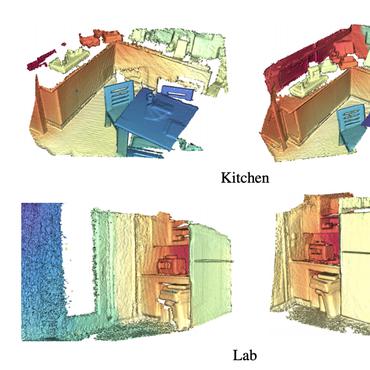Search Results for author: Qianying Wang
Found 10 papers, 7 papers with code
DreamSalon: A Staged Diffusion Framework for Preserving Identity-Context in Editable Face Generation
no code implementations • 28 Mar 2024 • Haonan Lin, Mengmeng Wang, Yan Chen, Wenbin An, Yuzhe Yao, Guang Dai, Qianying Wang, Yong liu, Jingdong Wang
While large-scale pre-trained text-to-image models can synthesize diverse and high-quality human-centered images, novel challenges arise with a nuanced task of "identity fine editing": precisely modifying specific features of a subject while maintaining its inherent identity and context.
Transfer and Alignment Network for Generalized Category Discovery
1 code implementation • 27 Dec 2023 • Wenbin An, Feng Tian, Wenkai Shi, Yan Chen, Yaqiang Wu, Qianying Wang, Ping Chen
On the other hand, we use these prototypes to calibrate noisy prototypes estimated from unlabeled data based on category similarities, which allows for more accurate estimation of prototypes for novel categories that can be used as reliable learning targets later.
Generalized Category Discovery with Large Language Models in the Loop
no code implementations • 18 Dec 2023 • Wenbin An, Wenkai Shi, Feng Tian, Haonan Lin, Qianying Wang, Yaqiang Wu, Mingxiang Cai, Luyan Wang, Yan Chen, Haiping Zhu, Ping Chen
Then we propose a Scalable Query strategy to allow LLMs to choose true neighbors of the selected samples from multiple candidate samples.
A Diffusion Weighted Graph Framework for New Intent Discovery
1 code implementation • 24 Oct 2023 • Wenkai Shi, Wenbin An, Feng Tian, Qinghua Zheng, Qianying Wang, Ping Chen
New Intent Discovery (NID) aims to recognize both new and known intents from unlabeled data with the aid of limited labeled data containing only known intents.
DNA: Denoised Neighborhood Aggregation for Fine-grained Category Discovery
1 code implementation • 16 Oct 2023 • Wenbin An, Feng Tian, Wenkai Shi, Yan Chen, Qinghua Zheng, Qianying Wang, Ping Chen
Specifically, we retrieve k-nearest neighbors of a query as its positive keys to capture semantic similarities between data and then aggregate information from the neighbors to learn compact cluster representations, which can make fine-grained categories more separatable.
Generalized Category Discovery with Decoupled Prototypical Network
2 code implementations • 28 Nov 2022 • Wenbin An, Feng Tian, Qinghua Zheng, Wei Ding, Qianying Wang, Ping Chen
Furthermore, the coupled training approach prevents these models transferring category-specific knowledge explicitly from labeled data to unlabeled data, which can lose high-level semantic information and impair model performance.
Fine-grained Category Discovery under Coarse-grained supervision with Hierarchical Weighted Self-contrastive Learning
1 code implementation • 14 Oct 2022 • Wenbin An, Feng Tian, Ping Chen, Siliang Tang, Qinghua Zheng, Qianying Wang
Novel category discovery aims at adapting models trained on known categories to novel categories.
MatchVIE: Exploiting Match Relevancy between Entities for Visual Information Extraction
no code implementations • 24 Jun 2021 • Guozhi Tang, Lele Xie, Lianwen Jin, Jiapeng Wang, Jingdong Chen, Zhen Xu, Qianying Wang, Yaqiang Wu, Hui Li
Through key-value matching based on relevancy evaluation, the proposed MatchVIE can bypass the recognitions to various semantics, and simply focuses on the strong relevancy between entities.
Towards Robust Visual Information Extraction in Real World: New Dataset and Novel Solution
1 code implementation • 24 Jan 2021 • Jiapeng Wang, Chongyu Liu, Lianwen Jin, Guozhi Tang, Jiaxin Zhang, Shuaitao Zhang, Qianying Wang, Yaqiang Wu, Mingxiang Cai
Visual information extraction (VIE) has attracted considerable attention recently owing to its various advanced applications such as document understanding, automatic marking and intelligent education.
Decoupled Attention Network for Text Recognition
4 code implementations • 21 Dec 2019 • Tianwei Wang, Yuanzhi Zhu, Lianwen Jin, Canjie Luo, Xiaoxue Chen, Yaqiang Wu, Qianying Wang, Mingxiang Cai
To remedy this issue, we propose a decoupled attention network (DAN), which decouples the alignment operation from using historical decoding results.
 Ranked #4 on
Scene Text Recognition
on ICDAR 2003
Ranked #4 on
Scene Text Recognition
on ICDAR 2003





